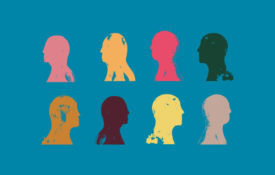-

Strengthening Contact Tracing Through Psychological Science
One way to improve the effectiveness of contact tracing is to treat infected people like important witnesses to the spread of a virus and use an approach informed by research on memory and witness interviewing.
-

“Stranger Danger”: Children’s Distrust of Men May Outweigh Information Accuracy
Preschoolers are still learning to consider information accuracy when making judgements of trustworthiness.
-
Citizens Versus the Internet: Confronting Digital Challenges With Cognitive Tools
Psychological Science in the Public Interest (Volume 21, Number 3)Read the Full Text (PDF, HTML) The Internet is an indispensable and global virtual environment in which people constantly communicate, seek information, and make decisions. The architecture of this digital environment influences people’s interactions with it. Despite many advantages of this architecture, it is also responsible for some negative outcomes, such as the spread of misinformation, rising incivility in online interactions, the facilitation of ideological extremisms, and a decline in decision autonomy.
-
AAAS Names 10 Psychological Scientists as 2020 Fellows
The American Association for the Advancement of Science has included eight APS members and two APS Fellows in its election of 489 AAAS members as 2020 Fellows. Election as an AAAS Fellow honors individuals whose efforts on behalf of the advancement of science and its applications in service to society have distinguished them among their peers and colleagues. The 10 psychological scientists listed here constitute all but three of the individuals in the Section on Psychology. APS Members: Peter R.
-

Older Adults Maintain Emotional Advantage Amid COVID-19
Older adults continue to report higher wellbeing despite the heightened risk posed by the coronavirus pandemic.
-

Hired, Fired, or Stopped by Police: The Discriminatory Stew of Intersectionality and Stereotypes
Research finds that the intersecting roles of gender and race combine in unique ways to feed into simple stereotypes that can contribute to complex patterns of discrimination.

